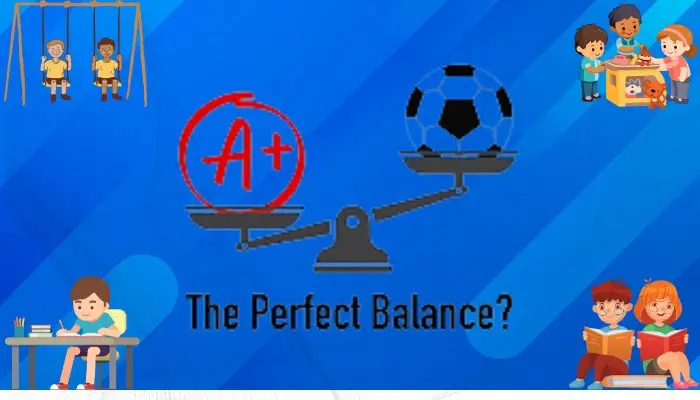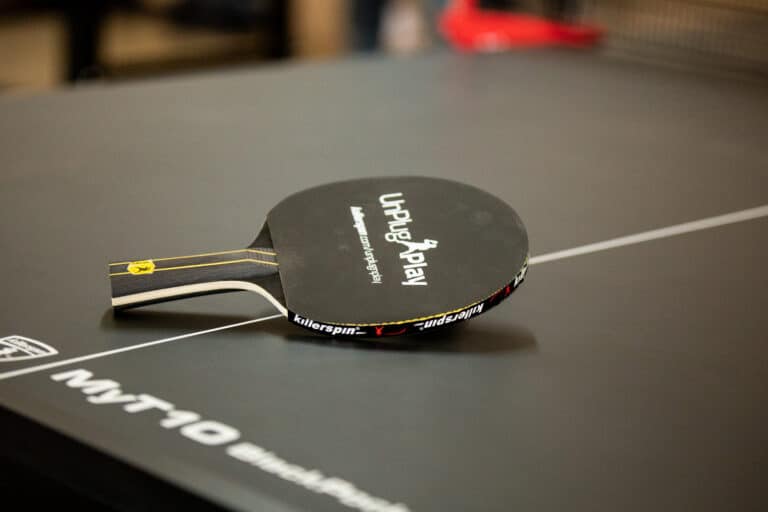How to Balance Academics And Sports for Kids? Mastering the Art of Multitasking
( If you purchase through our sponsored links, we may receive a small commission at no extra cost to you )

To balance academics and sports for kids, establish a structured schedule and prioritize time management. Encourage open communication and collaboration with teachers and coaches, and emphasize the importance of maintaining a healthy balance between both activities.
Finding the right balance between academics and sports is essential for children as it allows them to excel in both areas while promoting overall development. However, achieving this balance can be a challenge for young individuals. Juggling school assignments, exams, and extracurricular sports activities can often lead to stress and burnout.
Therefore, it is crucial for parents and educators to guide children on effectively managing their time and responsibilities. By emphasizing the significance of organization, communication, and prioritization, kids can successfully navigate both academic and sports commitments, allowing them to thrive in both areas of their lives. We will explore strategies to help children strike a healthy balance between academics and sports.

Credit: www.amazon.com
H2
Being a student-athlete can be a challenging yet rewarding experience for kids. It allows them to excel both academically and physically, but finding the right balance between academics and sports is crucial. With the right approach, kids can navigate their double responsibilities, flourish in their academics, and succeed in their sports pursuits simultaneously. Here are some key strategies that can help them achieve this.
Developing Time Management Skills
Time management is an essential skill that every student-athlete should cultivate. Effective time management ensures that both academics and sports get the attention they deserve without sacrificing one for the other. Here are a few tips for developing time management skills:
- Create a schedule: Encourage your child to create a weekly schedule that includes school time, homework time, and sports practice time. This visual representation will help them allocate time for each activity effectively. They can use tools like Google Calendar or a planner to stay organized.
- Prioritize tasks: Teach your child to prioritize their tasks by importance and deadline. This way, they can focus on completing the most urgent assignments first and allocate time for sports accordingly.
- Avoid procrastination: Procrastination can lead to unnecessary stress and compromises in both academics and sports. Encourage your child to start on their assignments early and adhere to the set schedule. This will help them stay on track and avoid last-minute cramming.
Establishing Priorities
Establishing priorities is crucial for student-athletes to maintain a healthy balance between academics and sports. By setting clear priorities, kids can ensure they dedicate enough time and effort to both areas. Here’s how they can establish their priorities:
- Evaluate commitments: Help your child assess their commitments to both academics and sports. By understanding the demands of each area, they can determine what needs their immediate attention and make informed decisions.
- Consider workload: It’s essential to consider the workload of school assignments, tests, and projects. Recognize that there may be times when academics requires more attention and adjust sports commitments accordingly.
- Communicate with coaches and teachers: Encourage your child to communicate openly with their coaches and teachers about their academic and sports responsibilities. This helps in managing expectations and ensures that they receive necessary support.
Seeking Support And Building A Support System
Student-athletes need a strong support system to succeed in both academics and sports. This support can come from family, coaches, teachers, and peers. Here are a few ways to seek support and build a support system:
- Talk to your child’s coach and teacher: Initiate conversations with your child’s coach and teacher to understand their expectations and see if they can provide any additional support or resources.
- Encourage teamwork and friendships: Foster a sense of camaraderie among teammates and encourage your child to build friendships within their sports team. This support network can provide motivation, assistance with missed assignments, and help with overcoming challenges.
- Provide emotional support: As a parent, offer emotional support to your child. Let them know that it’s okay to ask for help and that you’re there to support them through any difficult times.

Credit: leverageedu.com

Credit: issuu.com
Frequently Asked Questions On How To Balance Academics And Sports For Kids?
How Do You Balance Sports With Academics?
To balance sports and academics, prioritize your time, create a schedule, and set goals for both. Manage your time efficiently by allocating specific hours for studying and practicing. Stay organized, seek help when needed, and maintain a healthy lifestyle. Remember, consistency and discipline lead to success.
How Do You Balance Kids Sports And Life?
To balance kids’ sports and life, manage time effectively by creating a schedule that includes both activities. Prioritize responsibilities, set realistic goals, and communicate with coaches and teachers. Remember to take care of yourself and find ways to relax and bond with your child outside of sports.
How Hard Is It To Balance Athletics And Academics?
Balancing athletics and academics can be challenging but achievable with proper time management. It requires prioritizing tasks, setting realistic goals, and maintaining a structured schedule. Communication with teachers and coaches is essential for support. With determination and discipline, success in both aspects can be attained.
Do Sports Help Kids Academically?
Sports can help kids academically by improving their cognitive skills and memory retention. Regular physical activity enhances brain function, attention span, and problem-solving abilities, leading to better academic performance.
Conclusion
In a world where academics and sports are both valued, finding a balance for kids can be challenging. By encouraging time management skills, open communication, and flexibility, parents and educators can help children thrive in both areas. Letting kids explore their interests and passions while setting realistic expectations can lead to a healthy and fulfilling childhood.
With the right support and guidance, children can successfully navigate the demands of academics and sports, paving the way for a bright future ahead.





